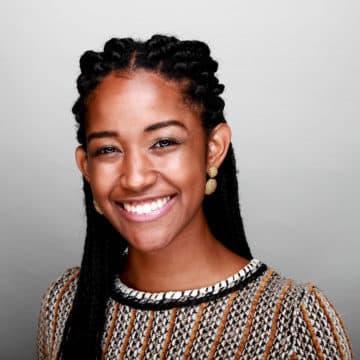Advertisement
With Masks Now Mandatory, What's The Etiquette?
ResumeWith Gov. Charlie Baker's face mask order now in effect, Radio Boston discussed norms and etiquette around them, and how they've become an integral part of slowing the spread of COVID-19.
We began by checking in with Radio Boston producers Jamie Bologna and Zoë Mitchell about their own experiences with face masks. And we spoke with two people who've been thinking about the role of masks in our new normal: Boston Globe reporter Beth Teitell and Dr. Cassandra Pierre, an infectious disease physician and assistant professor at the Boston University School of Medicine. She is also the medical director of public health programs and the associate hospital epidemiologist at Boston Medical Center.
The following excerpts have been lightly edited for clarity.
Interview Highlights
On respectful mask etiquette
Jamie Bologna: One of the things that I think gets me through the day is, when all our work is done, we can take our eight-month-old son out in his stroller for a walk around our Somerville neighborhood. And the sidewalks are decent, they're not wide, but we put our masks on and we try to get some fresh air. But — thoughtlessness is just the perfect way to put it — because it's almost everyday on these walks that there's some runner or exercising human who zips right by us, maybe has a mask on, maybe not. But they're definitely closer than 6 feet, and they're panting and they're sweating and they're breathing heavily. And I'm just like, you see me with the stroller. I can't move out of the way fast enough. It just doesn't feel thoughtful to come zooming past us that way.
On running with a mask
Zoë Mitchell: I do wear face coverings, even though I absolutely hate wearing them when I run. And I've been doing that thing where you keep it on your neck and every time I see someone, I pull it up. And when I'm by myself, I pull it down. And I think that's well enough. I'm keeping my distance. I'm trying not to directly run towards people in strollers. But I'm trying my best here. I have to get outside. It's one of the only ways I keep myself from going crazy.
On when you should have your mask on — or at least handy
Dr. Cassandra Pierre: The right way to wear a mask when you're out and about is, wear it when you're out in the community. That's going to the grocery store. That's taking a walk, especially in situations where you can't ensure that you can physically distance more than 6 feet from people. In terms of thinking about running, it is certainly an impediment, or it feels like an impediment. It's difficult to draw in breaths when you're running with a mask. But again, if you can't ensure that you are going to be 6 feet away from someone, if you're running by someone's carriage, it is certainly appropriate etiquette to put on that mask, potentially even just having in your back pocket, even if you're sure you're going to be running at a time or space where you're not going encounter other individuals. It's good mask etiquette.
On the intensification of mask policing
Beth Teitell: It used to be the people who wore the masks were the ones who got the looks, really as recently as mid-February. But now, of course, it's the ones who are not wearing them. I think [Cassandra] actually hit on something that's very subtle, but which I haven’t seen teased out in that way, which is this: A lot of runners or people walking think, “I don't need to have my mask up right now because I know that I’m not within 6 feet of those people.” But from her perspective, it sounded to me like she doesn't want to have to worry about it, and the fact that she's made to feel cranky by the fact that others might not be playing by the rules is, as she said, ruining her spirit. Ruining her spirituality. So my point is, like my mother would say to me and my brother: Don't turn me into a nag. Like, I don't want to be nagging you. And I think that's what she's saying, which I found fascinating. I think the etiquette as the coronavirus just continues to spread — the thing is, everything is getting very intense. And I think that that's what people are reflecting. You're having to kind of figure it out for yourself on a minute-by-minute basis. And that, I think, is leading to a lot of tension.
"I think it's when people look out, they want to feel comforted by knowing everybody's doing their all. That's why it seems very selfish for people when they sense that people aren't."
Beth Teitell
On masking as a social and cultural ritual
Teitell: It makes me think about something that a Scottish medical anthropologist talked about, which is "mask culture." And he said that the importance of that is that it fosters a sense of faith, a shared or mutual obligation and civic duty. It brings together people faced with a common threat and helps them mitigate one of the secondary dangers posed by an epidemic, which is the breakdown of social norms. He was saying that mask wearing is a social ritual. And I think that's what this tension point is. A lot of people saying, well, I'll stay 6 feet away or I'll pull it up when I see you. But I think it's when people look out, they want to feel comforted by knowing everybody's doing their all. That's why it seems very selfish for people when they sense that people aren't.
On why masking up can feel dangerous to some people of color
Teitell: A lot of black men have talked about how they feel that covering their faces actually is what makes them feel unsafe, because they're going to be racially profiled. Two black men, for example, said they were kicked out of a Walmart in Illinois for wearing protective gear. So there you really do have a problem because we're seeing that COVID is actually killing black people at a higher rate, it's more dangerous in that community, and yet those men feel that they're more in danger from wearing the mask. So it's particularly tragic there. And also, early on I spoke with a few people, a BU student who is Chinese, and she was wearing a mask. This was in February. And she said that another Chinese man was yelling at her on the T because he thought that she was bringing shame on the group by wearing the mask that would make everybody think that she and Chinese people were carrying the disease. So one of the many unfortunate things happening is that we are seeing an increase in racism because of these masks.
This article was originally published on May 06, 2020.
This segment aired on May 6, 2020.



